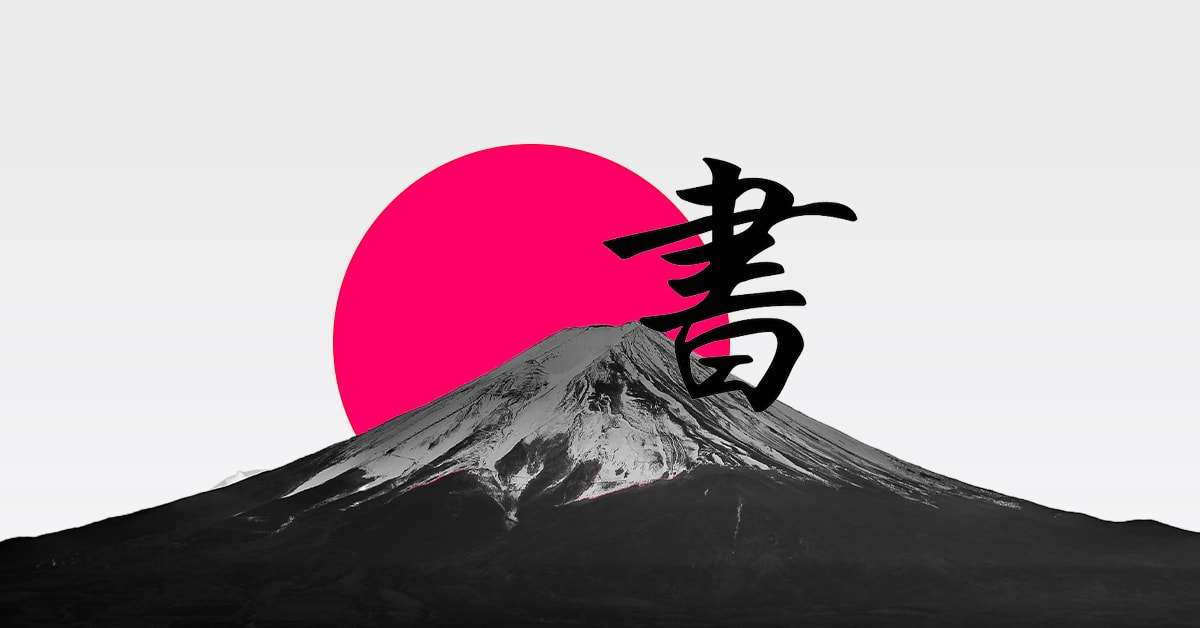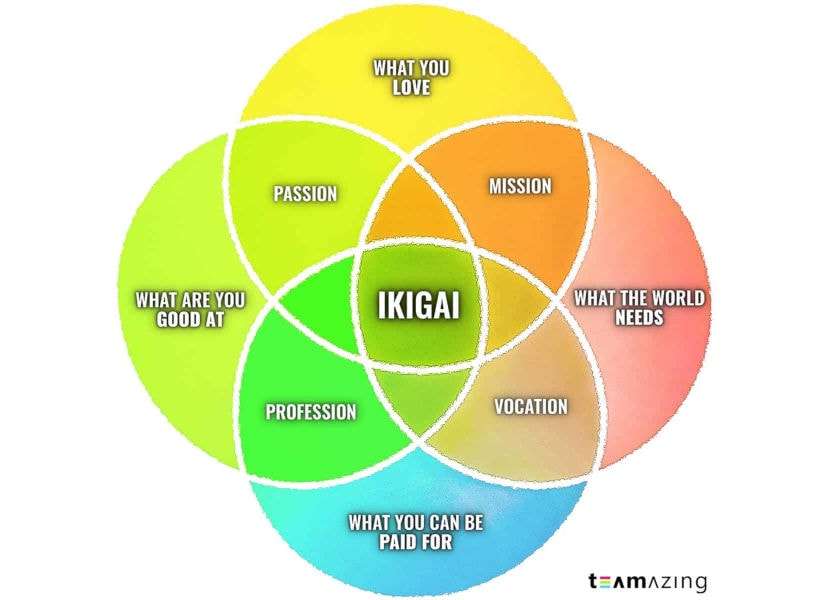A country that lectures the world on happiness with ancient wisdom, while at the same time thousands die of overwork every year – Japan cultivates a working culture that could not be more controversial.
It is the magic word of Japanese philosophy: Ikigai – reason for being. For ages, the Japanese have motivated themselves with the ancient wisdom of a principle that focuses on the very individual reason why it is worth getting up in the morning. Finding out what motivates one from the innermost is supposed to be the key to a long and fulfilled life. Especially on the island of Okinawa, where a large part of the people live according to Ikigai, the unfolding of it is evident: This is where some of the happiest and oldest people in the world live – it isn’t unusual to get over 100 years old there.
The Japanese work philosophy: Find your way
According to Japanese philosophy, everyone has their own special reason for living a life that is worth living, the individual Ikigai. To find out what this is, you have to be patient and reflect a lot. You embark on a very personal journey with and within yourself to find the right path for you. The Ikigai consists of four themes:
- What you love
- What you are good at
- What the world needs
- What you can get paid for
These themes give rise to four different basic needs that are important to explore: The mission, the vocation, the profession and the passion. Once these needs have been explored, it is easy to lead a fulfilled life.
Ikigai – in the world of work
For leaders, Ikigai is an excellent tool for staff motivation and development. Helping employees to find out what drives and motivates them from the core strengthens morale, the working atmosphere and efficiency. Employees who are happy with what they do stay loyal to the company and constantly develop professionally and personally. A win-win for both sides – after all, individualism on the job has never been more important for personal well-being than in the 21st century. Finally, focusing employees on their Ikigai can lead them to connect their positive energy and personal motivation with what they are responsible for in the company. Why not encourage exactly this?
This is how you connect Ikigai with your working world:
In top companies like Facebook, all employees come together at least once a year to rethink the company’s vision. In workshops, they work together to link their own life worlds and visions with the company. This has two outputs: on the one hand, to strengthen teamwork and make it more successful, and on the other hand, to work out the personal ideals of each individual and pursue them more strongly.
Regular discussions in groups and with individuals are also very suitable. Each employee should have the opportunity often enough to be coached not only on his or her performance in the team, but also to have his or her personal values and goals taken on board. Knowing what is important to each individual, what they enjoy when they get up in the morning and what motivates them to go full throttle is inevitable for a positive and vibrant working atmosphere. Combining the work ethic of individuals with those of others creates a happy, highly efficient team. Maybe organize an Ikigai workshop for the company: What are the overarching goals, why does an idea exist and why is it being implemented and how? Afterwards, many more employees will be able to identify with it if they feel that their own values are respected and included.
60-hour weeks: The bitter reality in Japan
As nostalgic as the principle of Ikigai may sound, it hardly has anything in common with the work culture in most of Japan. Where the wisdom of self-reflection may still prevail in quiet coastal regions and the countryside, the big cities are the place to go for overwork, stress and death by exhaustion. Working 60 hours a week is not uncommon, it is rather the rule. 23% of Japanese even work 80 hours a week or more. The strict performance culture that has always prevailed in Japan intensified after the Second World War and has never really improved since.
Besides the affectionate Ikigai, Japan is the only country in the world to use a word that could not be more opposite: Karōshi – death by overwork. Japan’s ever-stressful work ethic, plus the intense hierarchy within society, leaves little time for leisure and reflection. Ikigai has never arrived in the cities. The work style is highly unhealthy and sometimes even dangerous: it causes heart failure and even suicide.
Japan is pushing ahead with development. Industry and progress are of enormous importance for the economy. If you don’t keep up, you have to pack up: either you adapt to the fast-moving world of work, or you don’t have a job. After 12-hour working days, it is almost obligatory to go out with colleagues or bosses afterwards. Alcohol is the longed-for way out of the misery. On Japan’s streets at night, you meet overworked employees on every corner. They often fall asleep on the spot or spend the night drunk in the underground station. Sleeping on the streets is socially acceptable: the stress is standard and understood.
Work without life
At the same time, Japan is “dying out:” birth rates are falling drastically because there is no time for family in the stressful daily routine. A large proportion of men under 30 have never had sex – and even the desire for it has never arisen in many. There is no time to concentrate on the beautiful things in life.
Where has the ikigai gone?
If you compare Japan with the European work culture, they have a lot to learn. The basic intention is simple: find out what makes you happiest and make it your job. When you do what you love, your life is fulfilled and beautiful. And you never need to work again. Even 60-hour weeks seem to be meaningfully explainable and fun if you just do what pushes you. That the office workers in Japan’s big cities who collapse from exhaustion on the floor of the underground stations at night are pursuing their purpose can nevertheless be just an illusion. So how do you link it together?
The European work culture is certainly doing something right on this point: you feel an upcoming in a new direction. Work is no longer work. People no longer work purely for the money. Those who enter the labour market want to do what they like and enjoy. The urge for individualism, for self-development and personality development is great and it is driving the generation stronger than ever. It is the spirit of Ikigai, if you will, which they have already understood in other words: They listen to themselves. They reflect on their path. They give feedback to their employees. They try new things and discover hidden talents. The European world of work is closer than ever to fulfilling its self-determined being.
Whether having fun at work and doing something meaningful at the same time counteracts overwork is something everyone should be able to decide for themselves. It’s not for nothing that people are arguing for a 30-hour week: After all, leisure time and “life” should be no less important. Those who feel stress should cut back and take targeted time off. After all, we want to live long – and happily at the same time.
IKIGAI FAQs
What is Ikigai?
Ikigai is a method originating from Japan, in which one identifies through self-reflection those things that are necessary for a fulfilled life. What these things are is highly individual.




